ClickFunnels and Page Builders can be great, but is that what you really need instead of your martial arts website? Here's my take.
- Do you need a hole or a drill (and a driller)?
- The myth about what you need to create a sales funnel
- Doing the ‘Richard Branson Test’ for your martial arts business
- What a basic martial arts business sales funnel looks like
- The difference between an internet marketing funnel and martial arts school funnel
- The important factors that influence customers’ buying behaviour
- And more
*Need help growing your martial arts school? Learn More Here.
TRANSCRIPTION
Hey, this is George Fourie from Martial Arts Media, and in this video, I'm going to give you my take on websites versus ClickFunnels, or what I'm going to refer to is real martial arts websites, I'll explain why in a minute, versus ClickFunnels, Leadpages, and other page builders. I think there's a bit of confusion in the marketplace about what a funnel actually is, what part of a funnel you actually need, and for what type of business? Do you need the same type of intricate sales funnel structure for a martial arts business versus if you're selling digital products, or you got an e-commerce store or something like that?
There's a bit of confusion, and I was on a webinar yesterday where the guy I was referring to doing a comparison between a website versus a funnel, a sales funnel, and kind of saying, “Look, the website model is dead. You need sales funnel.” But I think that creates confusion because why does it need to be different? It doesn't need to be different. It's the same thing, it just means one website model was developed with an old mindset, with the sales funnel was not. It doesn't have to be different.
Do you need sales funnel? Absolutely. Does it need to be separate to your website? Definitely not. There's a bit of confusion with that, so I'm going to be as diplomatic as possible here, and want to give you my perspective on the difference between ClickFunnels, websites, martial arts websites, really crappy websites, good websites, and other types of page builders. And look, we've used them all, and I'll give full disclosure, martialartsmedia.com, my company, we develop martial arts websites, we help martial arts school owners with online lead generation. That's our focus.
We've used a bit of some page builder tools for some clients, but the majority, we build out our websites on Wordpress, because it's a platform that you own, we don't have to keep your login details, you don't have to pay a monthly fee for it. That's our preferred way but I want to give you both, all the facts, and you can make the decision for yourself because maybe a tool like ClickFunnels is for you, but maybe it's not.
The first thing I want to really look at here is to look at the old situation. Do you need a drill or hole? Well, you need the hole, right? How are you going to get the hole through a drill? Now, what type of drill you need? Maybe you need a certain type of drill? Different brand? Do you need to actually be the driller, or can you actually hire a person that's an expert at drilling the hole, and get that person into drill the hole for you?
My comparison analogy is, are you the right person for the job? Are you the person who should be doing drilling the holes in your business? Should you be building your own website? In 2017, I don't think it's necessary that you need to be touching any tech whatsoever, and a mental model is just to do the Richard Branson test. The question is, would Richard Branson be doing this in his business? I want to ask you that. Are you the right person to be doing drilling the holes, and putting up websites?
You know, my expertise is computer programming, I've adapted to marketing over the last 10 years, but I can put a website together, and I've got a web developer on staff, he's pretty busy with developing websites at the moment. Yesterday I was putting together a report for this actual video, and I'll actually show you, and because he was busy, I didn't want to bother him, so I put together a landing page myself, and for me, I thought, “Hey, this looks pretty cool doesn't it?” So I put this together, and I showed it to my developer, and five minutes later, he brings me this, which looks 10 times better, and I think the danger in a lot of these types of tools is it does what happened to me. It creates false confidence.
Now this is both on Wordpress to a different editor, but it creates false confidence that you think you are actually really good, where maybe you're not, and maybe somebody else could do it much better, do a professional job for you, and you get a better result at the end of the day. Keep that in mind. Are you the right person for the job here? Do you need to be drilling the holes in your business, or should you hire someone else to do that for you? Let's just remove the marketing hype for a minute, and let's look at the actual facts.
I'm going to draw out a sales funnel here for you, just to give you a bit of an idea, but this happened to one of our members in our Martial Arts Media Academy, where we teach martial arts school owners about lead generation, and the member said to me, well we were running through Facebook ads, and the member said to me, “Well, yeah, I'll get the ad up, but I've just got to figure this ClickFunnels thing out.” And I was asking, “Why? What are you going to need to do with ClickFunnels?” “Well, I was told I need ClickFunnels, so I bought this thing.” And I told the person, “Well, you've got a perfect landing page. We developed a landing page for you, it's professionally designed, we interviewed you for the actual copywriting to get your perfect message, to get your values, and put it down in writing into a structured sales message.”
And we'd done all this for the person, and it was ready to go. All that they needed to do was actually commit to the Facebook ads, but instead, they bought ClickFunnels and got sucked in by the tech, and started buying products that they thought they needed, which they didn't need, and that's what I've got a problem with. Not that actual tool, but that the wrong people are buying the tools thinking they need it, where they actually don't.
I want to show you this quickly, and just for, I guess, if you don't know anything about me, just for a bit of credibility for my end, I guess, but our landing pages that we've developed and I pulled this report just before I created the video. Since the last 10 to 11 months, our landing pages have generated 964 paid trial students, so in monetary value that's $30,000, but that's not really what's important.
What the real value is, is the lifetime student value, and from based on our numbers, the average that we normally find is $1,500 is a good lifetime student value. If you calculate it on that, yours might be more or less, that's $1.4 million. $1.455 million worth of students. Look, our landing pages convert. They convert, we create a custom copy from that, we design it, we put it on your website and we don't use ClickFunnels or any fancy page builder, and it gets results.
I want to break that down for you quickly, and let me just fire up my iPad here quickly, and use this as an example. Let's have a look. If we look at a sales funnel. Now, for the most part. Right now, let's do a comparison. In the internet marketing space, and this is sometimes a problem when you buy into internet marketing hype because there's a lot of internet marketing hype out that there. If you look at, let's do this and we looked at internet marketing.
A lot of the models that people follow would be, you've got your page here, and they call it a let's say like a trip wire, and the tripwire might be like a $7 product. You're trying to create this sort of value letter. We try to do the same, but I'll show you a different way in a minute. So, you've got this $7 product that you create, and then that goes to what's called a one-time offer normally. You only see it now, there, never again. You gotta buy it there, and let's say that's $47 or $97. That's the up-sell once you've bought the other one. Then, that page might take you to another one-time offer, OTO, and let's say that was $297. Excuse the handwriting. That's if you said yes, and if you said no, then you might go to a down-sell of, let's say $197. That's sort of an internet marketing model. You've got all these steps that you follow, and you want to bulk up a real funnel of all these different aspects.
Now, let's look at a martial arts school. With a martial arts school, you don't need that much right? You might, look, there can be variations of this, because for some of our clients, Facebook ads, they send them directly to the landing page. Just a straightforward sales page, as is. It could be, let's call that the rate offer. That'll be the paid trial page. People can go there directly, but you might have another page here. This could be the homepage on a website, but it's basically like a, we're going to call it a lead magnet page, or an inquiry page. It's kind of where something free is happening. This could be an online inquiry, it could be downloaded lead magnet, a lead magnet, something of value, for the purpose of getting a lead. It's basically a contact and inquiry page. Your funnel could be something like the free thing, and then people see the paid trial after, and then all that you really need after that is a thank you page.
This is a really, really important page. We don't have time to go into that into detail, but the way we do our Facebook ads is we track each of these elements so that we know how we can advertise to people based on the action that I've taken. That's going a bit off course, so I won't go into that right now, but that is the basic funnel. That is a basic funnel for a martial arts school. Free offer, paid trial offer, and the thank you page.
Do you need a funnel building tool that's $100-$300 a month for that? I don't think so, because why can't your website do the same thing? Your website can do the same thing, and you don't need 20 funnels, or 30 funnels or 40 funnels to do that. If you got one funnel that you optimize and that converts, and I'll show you the ways we go about that in a minute. Again, do you want to get your hands dirty with those types of tools? It's good to have the knowledge, but should you be the person doing it? I think you can do better things in your business, better things in running your martial arts school, in running the classes, running the schools, training your staff, running a better business, and get somebody to do this type of thing for you.
Back to the funnel. This is the basic funnel. If you optimize that one funnel, then you've got a working model. Then you can just drive traffic to that because here's the problem. The problem is this. If you have an awesome funnel, but you're not respecting the customer journey, then what's the point of people seeing your awesome funnel on a Facebook ad? Then when they actually decide to do some research on you. People do that, they go to Google, they check you out, and they land on your website, and your website sucks, and you lose the lead. They click the back button and they go to your competitor.
What does that help you? Does this mean you need to have the funnel, and then you need to have the website, and then you need to have 20 funnels, and multiple pages, multiple websites? I don't think so. If you actually know how to develop a website properly, then you know how to segment the people on that website. That means that your pages are independent. I'll go back to that in a minute because I want to answer something else, just on multiple websites, which I also believe you don't need. We'll cover that in just a minute.
Let me not jump around. Back to the customer journey. Customer journey. What we need to know about our customers is people take 6-8 interactions before they reach a point of conversion. That is the customer journey. 6-8 brand interactions, that's salesforce stat. That can be they check their mobile phone, they drove past their phone, they checked out your website, they saw your Facebook page, they saw a social media post. There's a lot of interactions that can happen before a conversion.
Conversion doesn't need to be a paid trial. It can be just a phone call, it can be just an email. This customer journey is happening, and it's happening at multiple times, different times, different devices. Those are steps that we just got to know that this is what's happening. So, why don't we base our marketing on these facts, and make sure that we got all the conversion points covered? Because I can guarantee you, if you're running 20, 30, 40 funnels, that's going to be really, really hard to optimize, and really, really hard to track people. Unless that is your full-time gig, or you got a very, very deep pocket to cater for that, it's going to take a lot of work.
Let's get back to the website. Does this mean if you're running multiple styles, that you're going to need multiple websites? Look, there's different ways of doing things, and all respect to how everybody does their way of business. The way we try and look at it from the start is leverage. How can you do the least amount of things, for the maximum amount of effort? Because look at this online world, it's crazy right? Do you ever feel that you're getting everything done that you need to get done? Why not just structure things that you work on the core basics, the core fundamentals, and you structure them right that your marketing becomes easier, and you don't have to spend all this time and all this tech, stuff, and everything. Let's get back to, I want to get back to the iPad here.
Let's take a quick look. Here's the thing and this is if you're running multiple styles within your school. If you're running multiple styles, for us, this is how we structure the website. We start off with the homepage. We got the homepage. Then the homepage is really where people land. It's really also just a landing page because people are going to land there, they are at different stages in their buying cycle, something else I will explain in a minute as well. The homepage really serves as a place to put people in the right place to have the right conversation.
What might happen is they are interested in style 1. Not a dollar sign, hang on. Style 1 might be kids' karate, for example, or they are interested in style 2, kickboxing. Or maybe they're interested in style 3, Krav Maga, or something else. These are three different conversations to be had. That's what the homepage is doing, it's acting like a chooser to send people where they need to go. These pages then do the specific copy for the specific audience having this specific conversation. It's no brochure, it's actually understanding the design concept, and knowing your market, and knowing how to segment it properly to send people to the right place.
One thing that we focus on because we do Google advertising, we make sure that all these pages have all the relevant information that you need to make a decision because we advertise them independently. We don't send people to the homepage, ever. People land there because they might be following your brand, or they heard about you. They google you, so the first page they're going to land is that homepage. That happens, but when it comes to the structure, we want to make sure that the homepage is just a chooser to send people to the right place. All these pages have a conversation that was self-targeted.
Do you need multiple web pages for this? No. How many signs do you have in front of your school? Do you have a different sign for each style or page? Do you segment your school like that? If people come for kickboxing, do you hide the kids? You know what I mean? There's always going to be this bit of overlap. You're much better off, in my opinion, and I've had this conversation multiple times in high-level mastermind groups. It's much better to have your one website, one brand, simplify things, and make sure that you're segmenting at the right place. I guess I should say this because segmentation is important.
Being specific is important, but are you doing it at the right place? Do you need to do it on a Facebook level, so that every Facebook page is different? I don't think so. Why don't you keep it under your same brand, and segment at the right place? Because this is where the conversion really is going to happen most of the time, depending on your marketing strategy of course again, is on the website. So why don't you segment people there and have those separate conversations? This can easily be done on one website. When people land on the kids' karate, they don't see the kickboxing, they see kids. They see kids' pictures. They see all that. So you can segment this according to that. I hope that helps.
The way we go about this when we’re creating a website. Look, it does take work, there's no doubt about that. We focus strongly on what's called A/B split testing. That means that one website might have a separate headline to the other one. We're fortunate enough that we develop websites, so we do this on a larger scale, and that way we can track different elements, and we do take it a step further. That is with heat maps.
Heat maps are really, really revealing, because you go based on not what people say they do, but what they actually do. You can see what people are clicking on your website, and the advantage we get from this is invaluable because we can see exactly what people are doing, what they click on, what they do not click on. This takes the A/B split testing to another level because what we gain from the one, we can use on the other. It becomes an invaluable exercise to really check our different websites for what we do for members. So, that's the one thing.
I should talk about the other side. Does this mean that all websites are created equal? Definitely not. This is the other, and this takes the conversation to a whole nother ball game. One thing we can establish, you need a sales funnel. Does it need to be on ClickFunnels or Leadpages or one of these tools? No, it doesn't. You can build that out on your website, preferably get a professional person to do it that understands sales and marketing.
Here's the problem with most web developers. Most web developers don't focus on sales and marketing, and I understand that really clearly, because I started out as a computer programmer, and tech and gadgets was my thing. It was only until I started learning about online marketing, and marketing and sales, that I really started to see how the two actually linked together. The problem is, it's two very, very different skill sets generally. A person that's focused on technology and analytics, or a person that's focused on graphics, is not necessarily focused on sales and marketing. When your development team consists of a technical person and a graphics designer, there's absolutely zero sales strategy on that website. So, you got to watch out.
What I've put together for this video is a report, and you can download that. This will help you. It's called “20 Questions to Ask Your Web Developer Before Investing in a New Martial Arts Website.” This is the top 20 questions that I've pulled together of what you should be asking a web developer. This is very, very quickly going to tell you where their mind is at, and if they're going to deliver with what it is that you need. What do you need from your website? You need leads, and you need paid trials. You need someone with that understanding. If you're watching this video on Facebook, just type 20 in the comments, and we will send that through to you. Otherwise, just check it out on martialartsmedia.com and it will be available for download in the show notes of this episode. Something else for you to consider.
We've covered your website can be your sales funnel. You need someone that actually understand the sales and marketing process to facilitate that for you. A big thing of why we focus on building things on your website, and this will be covered a bit more in the report, is having an asset. When you look at the online world, there's one place where you actually build out an asset, and that is in your domain name. So your .com, .au, .co, .uk, wherever you are located.
Your website address is your one and only asset. The problem that can happen is you own the domain name, but somebody else actually owns your website, so it's kind of like you own the house on a piece of land, but somebody else owns the land. Somebody else can just take the land away from you, and you're just stuck with the house. Or, you own the land but somebody else owns your house, so somebody can just go break the house down if they want. Something to check out for.
So, when you're building out things on the internet, and you're looking at the long term, what's going to last the longest for you? Then it's a wise move to build things out on your website. It's maybe not always the quickest, and maybe not always the easiest, but long term, it's going to benefit you, because all your prime content, and if I say content, videos and articles, that stays on your website.
A few things for you to consider. Now, look, if you're doing things yourself, and you're at the point in your business that you've got to do absolutely everything, then maybe a tool like ClickFunnels or Leadpages can help. But you got to be careful because you might get sucked into a lot of things from top marketers, that'll make you buy things. Probably won't make you, but you'll feel that you need to buy these things, and you don't really need them. It's something for you to consider.
If you are hands-on with the tech, and you feel that you're 100% clued up on all the stuff, and nobody can do a better job, then hey, commit to it, do your thing. It could be good to just sometimes test things and get an offer out quickly. But if you want more specifics, and you want to be a bit more in detail of getting a sales funnel done for you, or website done that's yours on your domain, in your structure, then reach out to a professional, whether that's us or not. Go for it.
All right, I hope that helps. I hope that clarifies a few things. If you want to download that report, go to martialartsmedia.com, or if you're watching this on Facebook, just leave a comment with the word 20, and we'll send that through to you. Thanks, and I'll speak to you soon. Cheers.
*Need help growing your martial arts school? Learn More Here.
Enjoyed the show? Get more martial arts business tips when you subscribe on iTunes for iPhone or Stitcher Radio for Android devices.


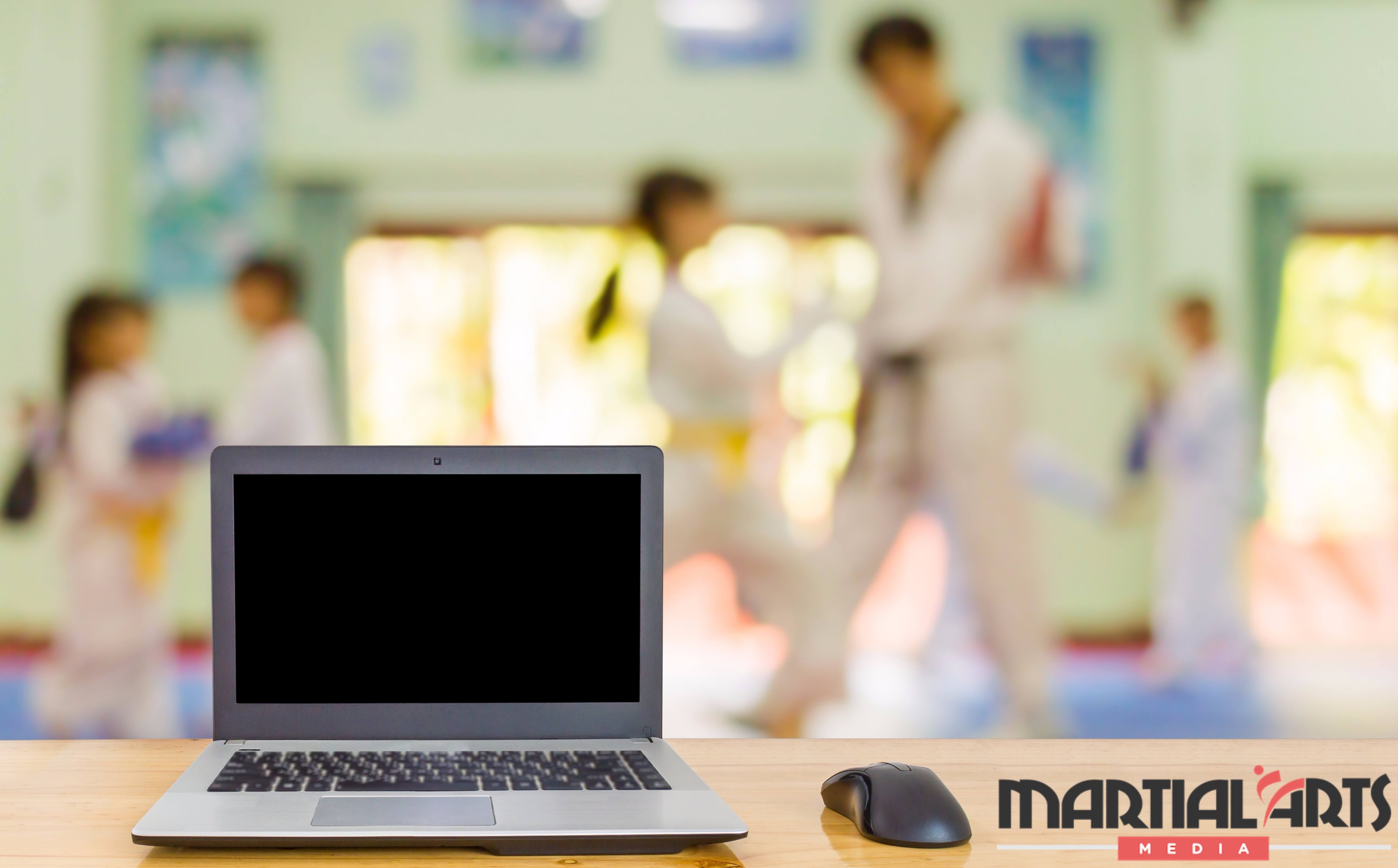
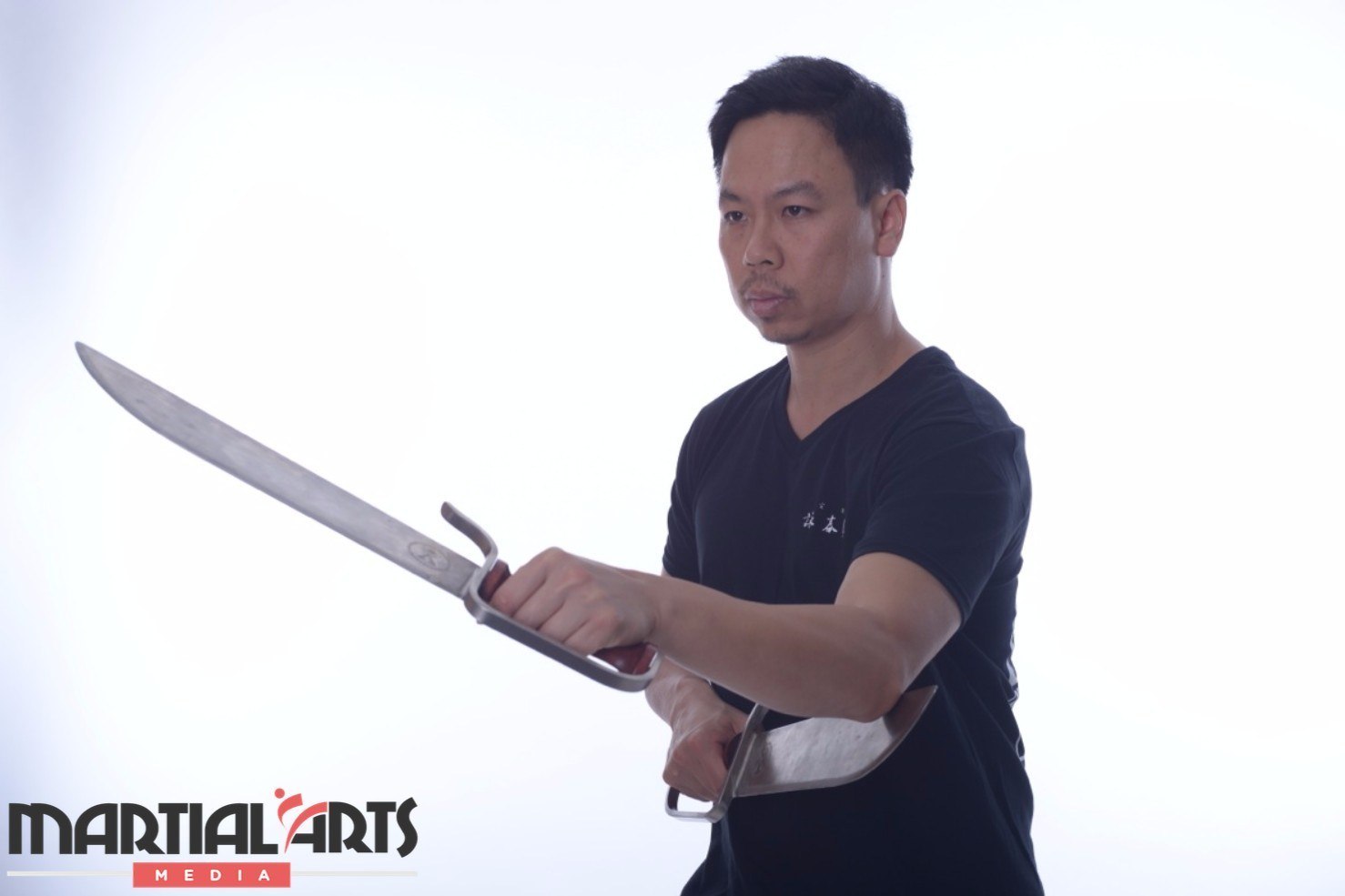
 Jack
Jack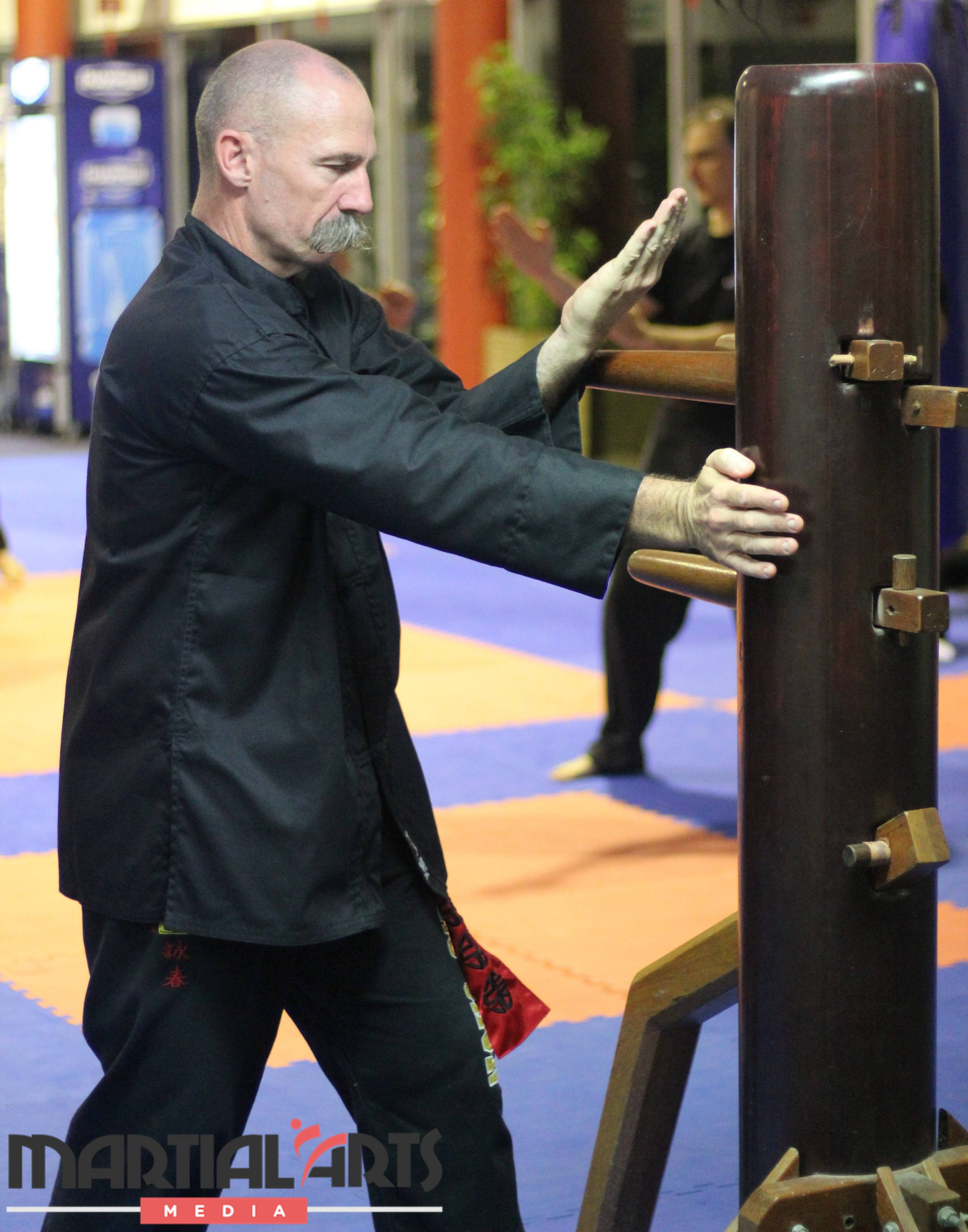 Dave: Funnily enough, in the beginning, it just started off over a cup of coffee with a mate of mine, Jack Leung from Practical Wing Chun, he pointed out your Martial Arts Media Facebook page I think it was. I looked into it and then yeah you had the academy there and it sort of went from there, because I was really wanting to make my school go full time. At that stage it wasn't, so I was just hungry for information and help to get into an industry that I'd been a part of but only on the outskirts.
Dave: Funnily enough, in the beginning, it just started off over a cup of coffee with a mate of mine, Jack Leung from Practical Wing Chun, he pointed out your Martial Arts Media Facebook page I think it was. I looked into it and then yeah you had the academy there and it sort of went from there, because I was really wanting to make my school go full time. At that stage it wasn't, so I was just hungry for information and help to get into an industry that I'd been a part of but only on the outskirts.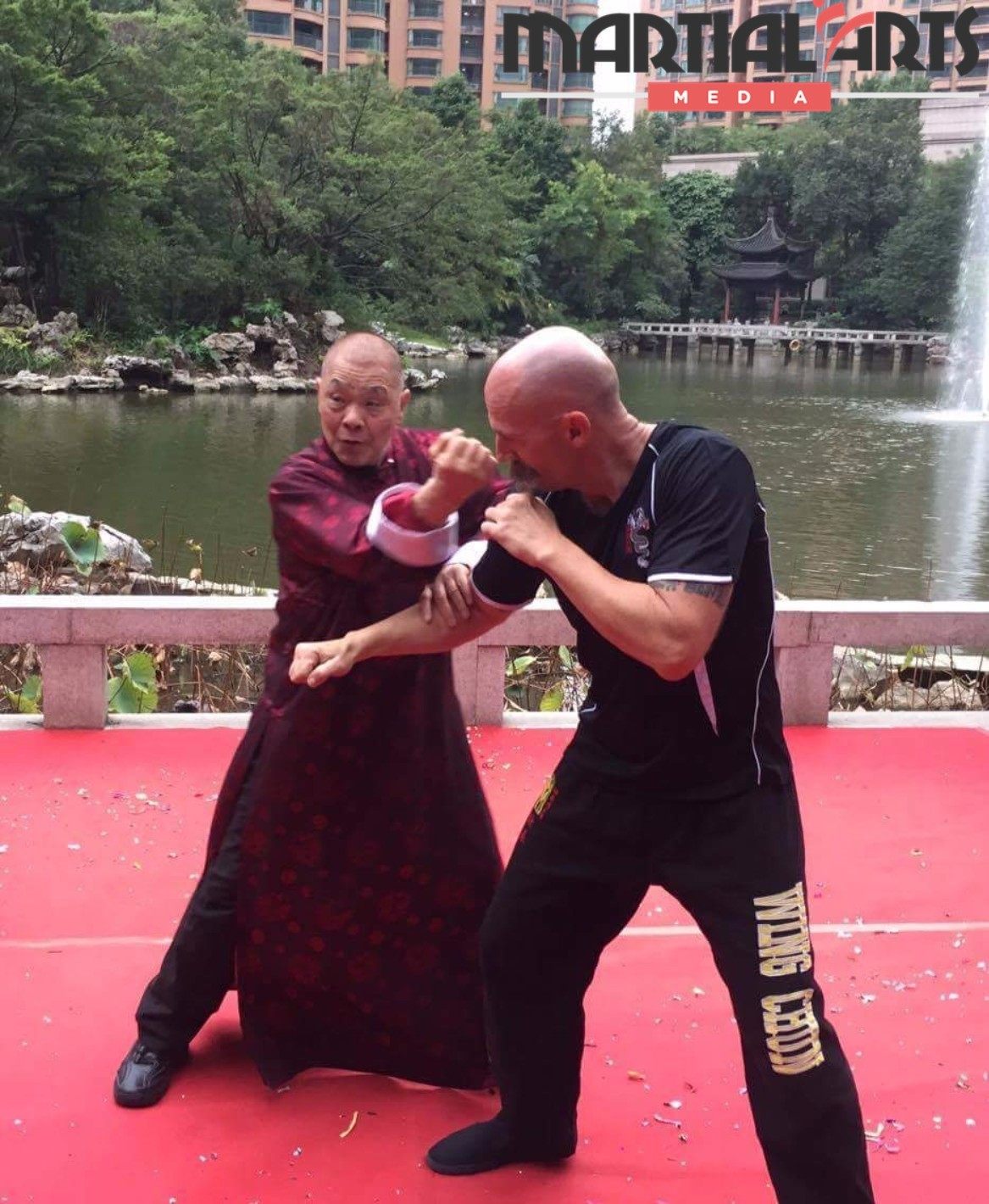 Dave: Yeah George, I'm sort of the type of person that is always keen to learn. I've got a hunger for knowledge, so it's been a great journey with you doing all of the different aspects of what we've covered in the academy. Say from how your website should be structured, the email sequences, and then how to work Facebook, I mean how many modules was that. That did my head in, it's still doing my head in.
Dave: Yeah George, I'm sort of the type of person that is always keen to learn. I've got a hunger for knowledge, so it's been a great journey with you doing all of the different aspects of what we've covered in the academy. Say from how your website should be structured, the email sequences, and then how to work Facebook, I mean how many modules was that. That did my head in, it's still doing my head in. 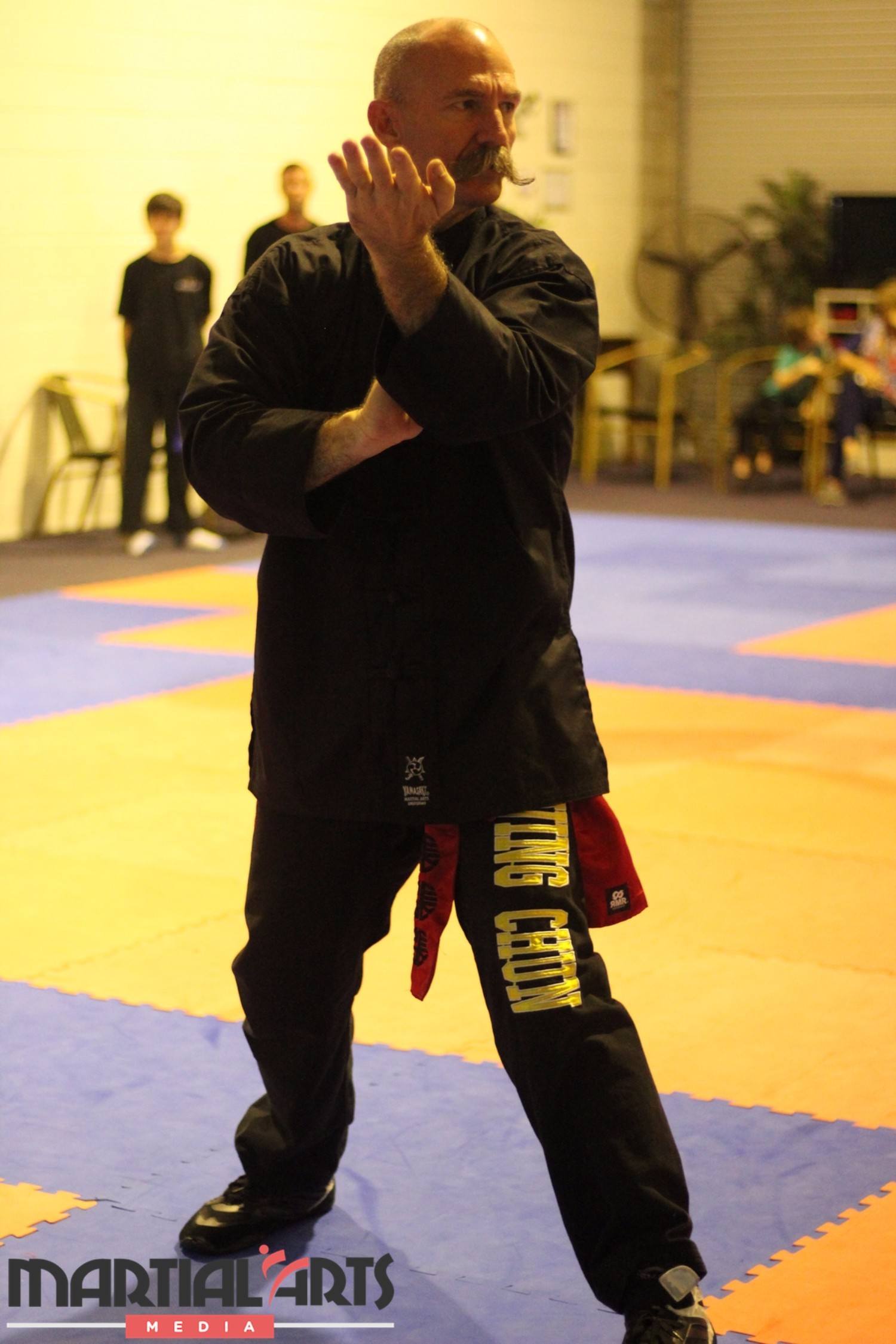 Dave: Mate, look anybody who has a martial arts school, you can't go wrong.
Dave: Mate, look anybody who has a martial arts school, you can't go wrong. 

